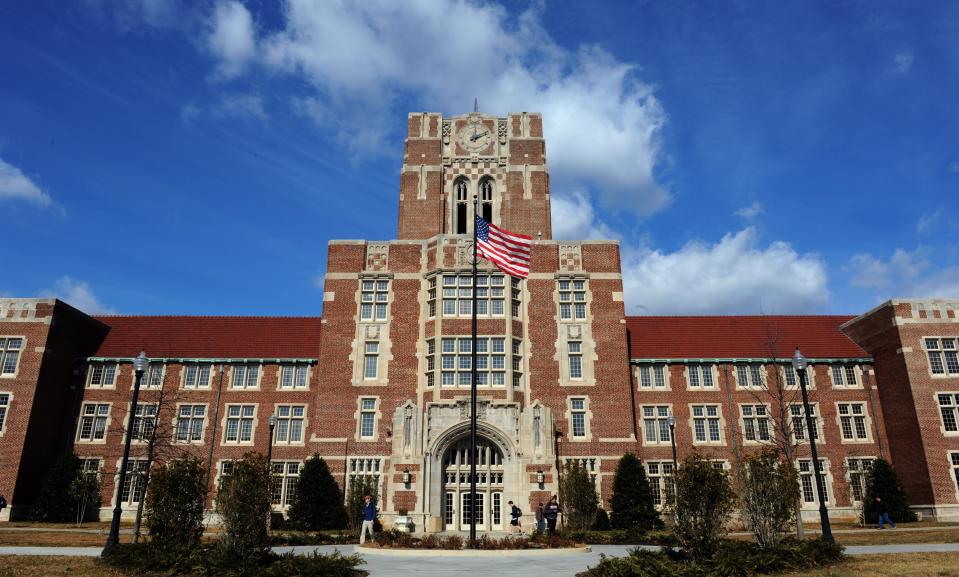University donations are kept secret in Tennessee. Here's why.
- Oops!Something went wrong.Please try again later.
In a Knox News investigation into how one prominent Tennessee attorney directed money from class action lawsuits to universities across the state, we asked those schools about where the money came from and how it was spent.
The universities, who have to follow the state’s expansive open records exemption list, declined to answer specific questions about the donations.
Why are donations exempt? Where did this exemption come from? Who pushed for the veil of secrecy around donations?
What follows is a brief unpacking of the 2007 law.
Who sponsored the legislation?
The bipartisan bill can be traced back to Knoxville Reps. Joe Armstrong, a Democrat, and Sen. Jamie Woodson, a Republican. Knoxville Reps. Harry Tindell, a Democrat, and Doug Overbey, a Republican, signed on as cosponsors.
The bill passed unanimously in both the House and Senate, and Gov. Phil Bredesen signed it into law.

What does the law say?
The law is straightforward.
Gifts to “public institutions of higher education or foundations” that include the name, address, telephone number, Social Security number, driver's license information or any other personally identifiable information about the donor or their family are not open for public inspection.
Who led the push for it?
Anthony Haynes is now the executive director of the Tennessee Municipal League. At the time the law was signed, he served as the director for state relations for the University of Tennessee System.
The push for the law came from the UT System, he said. The system, under the leadership of President John Peterson, was trying to reinvigorate its fundraising.
What were the reasons?
Woodson, who is now a member of the university system's Board of Trustees, said the law modernized the way schools accepted funds. It was considered – and is still considered – a best practice in nonprofit and university fundraising.
As Haynes explained it, there were three driving forces.
Some donors want to give anonymously because that’s how they like to give. It's akin to dropping cash in the offering plate at church – the donors don't want credit.
Some donors want to keep their wealth private. They keep it quiet so they're not treated differently by their neighbors. Or they don't want to be hustled or scammed, or hit up by other organizations looking for donations.
Finally, he said, there are some families who don’t want other members of the family – their heirs, typically – to know how much money has been donated to the university.
What are the ramifications?
Quite simply, the law has cut off any public oversight of donations. For a news report such as the investigation Knox News produced, there’s no question that the schools that received big donations – the University of Memphis, East Tennessee State University and UT – have to provide answers or specifics.
Deborah Fisher, executive director of the Tennessee Coalition of Open Government, says the policy raises concerns about how private donors can exert power over public institutions.
“It is understandable that UT, who is trying to raise private donations for the college, would want to give donors anonymity if that’s what the donors would like,” she said. “If someone is giving you $1 million, I would think UT would like to say, ‘OK.’
“Anonymity, however, has a flip side and that is as universities increasingly rely on donated funds, I think there is a question about private influence on the public universities,” she continued.
What was the investigation?
Attorney and onetime U.S. Senate hopeful Gordon Ball has repeatedly used a loophole from a little-known legal doctrine for class action lawsuit settlements that allows attorneys to direct how money that wasn't paid out to plaintiffs in a class action lawsuit is spent.
Ball repeatedly was able to direct those dollars to universities he has a connection with. These donations, called cy pres, totaled some $3 million to universities and charities across Tennessee. As long as a judge signed off on them, the donations were legal.
Ball's mark on these schools is impossible to miss.
There’s the beautiful top-floor, glass-walled Gordon Ball Scenic Reading Room at the University of Memphis School of Law. There’s the Gordon Ball Family Athletics Board Room at the University of Tennessee. And there’s the Gordon Ball Court inside the practice facility at East Tennessee State University.
Attorneys across the country, meanwhile, have been trying to get rid of these sorts of cy pres donations for years, arguing they violate the spirit of a process designed to direct money that isn't given to plaintiffs to organizations that have some connection to the lawsuit.
Tyler Whetstone is a Knox News investigative reporter focused on accountability journalism. Email tyler.whetstone@knoxnews.com. Twitter @tyler_whetstone.
This article originally appeared on Knoxville News Sentinel: Tennessee university donations are kept secret. Here's why

